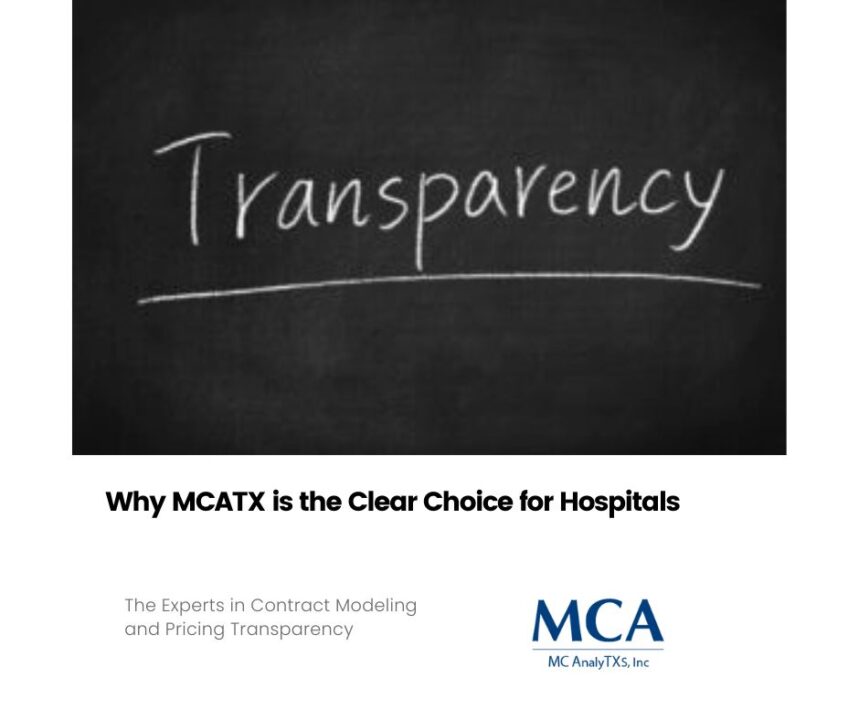

How 2025’s Policy Shifts Are Changing Managed Care Contracts (and Reimbursement)
In 2025, the healthcare landscape is experiencing a wave of change—driven largely by aggressive payer policy shifts, new regulatory guidance, and increased pressure on providers to deliver value over volume. For hospitals and health systems, the impact on managed care contracts and reimbursement models is profound. What worked in 2023 or 2024 may no longer apply, and organizations that fail to adapt risk serious revenue shortfalls.
At MCATX.com, we help hospitals navigate these disruptions with data-driven strategies, contract expertise, and front-to-back revenue cycle alignment. Here’s what’s changing—and how to respond.
1. Value-Based Pressure Is Increasing—Whether You’re Ready or Not
Payers are accelerating their transition to value-based care. In 2025, more managed care contracts are tying reimbursement to performance metrics, quality scores, patient satisfaction, and total cost of care.
What this means:
- Hospitals must hit quality benchmarks to secure full payment.
- Reimbursement is increasingly retrospective and risk-adjusted.
- Traditional fee-for-service protections are being phased out.
MCATX Solution: We help clients align operational workflows to contract terms, ensuring metrics like readmission rates, length of stay, and HEDIS measures are actively monitored and improved. Our contract review process highlights risk-bearing clauses, incentive structures, and critical thresholds that may impact reimbursement.
2. Payers Are Tightening Utilization Review and Prior Auth Requirements
Utilization management rules have become more stringent across commercial and government payers. Hospitals are now seeing:
- Increased medical necessity denials
- More claims flagged for retroactive review
- Delays in authorizations for high-cost procedures
Why it matters: These barriers directly affect throughput, cash flow, and provider satisfaction. Missed authorizations or improperly documented necessity can lead to full claim denials—especially under managed care agreements.
MCATX Solution: We provide hands-on training and workflow optimization to ensure teams are meeting payer-specific documentation and authorization standards. Our front-end support helps reduce preventable denials, and our denial analytics uncover trends so you can course-correct fast.
3. Payers Are Unbundling Services and Repricing with Aggressive Edits
Another major 2025 shift? Increased payer use of automated edits, coding audits, and payment bundling policies. This is causing widespread:
- Payment reductions through automated code edits
- Denials of “included” services post-payment
- Unexpected underpayments despite contract terms
MCATX Solution: Our audit experts work with coding and billing teams to preemptively detect and flag high-risk CPTs, modifiers, and billing patterns vulnerable to edits. We also assist with payer escalation and underpayment recovery, helping hospitals recoup what they’ve rightfully earned.
4. Contract Language Is Getting Murkier—and Riskier
Managed care contracts in 2025 are longer, more complex, and filled with ambiguous language that puts providers at a disadvantage. Key risk areas include:
- Repricing clauses tied to payer discretion
- Broad definitions of “medical necessity”
- Opaque methodology for risk-sharing and penalty enforcement
MCATX Solution: We provide contract analysis and renegotiation support, identifying language that may increase financial exposure. Whether you’re preparing for renewal, disputing a term, or considering a new payer agreement, our managed care experts ensure your contract terms are clearly defined, enforceable, and aligned with your business goals.
5. Payment Timelines Are Slowing Down
Payers are taking longer to adjudicate claims, issue reimbursements, and respond to appeals. This delay is partly due to increasing reliance on AI-driven review tools and remote audit teams.
Impact:
- Cash flow is being squeezed for even top-performing hospitals.
- The AR over-90 bucket is growing fast.
- Contracted prompt-payment timelines are often ignored or extended.
MCATX Solution: We implement payment timeline tracking tools that hold payers accountable to contractual terms. Our team helps accelerate collections through strategic follow-up and payer engagement. We also work with legal and compliance teams to push back on repeat offenders.
The MCATX.com Advantage: Proactive Managed Care Strategy
Hospitals can no longer afford a passive approach to managed care. Every contract must be reviewed with precision. Every operational process must align with real-time payer behavior. Every denied claim must trigger deeper analysis.
That’s exactly what we provide at MCATX.
How we help:
- Contract Review & Renegotiation Strategy
- Denial Trend Analysis & Root Cause Resolution
- Payer Behavior Monitoring
- Clean Claim Optimization
- AR Recovery for Managed Care Payors
In 2025, navigating policy shifts in managed care isn’t optional—it’s essential to long-term financial viability.
Want to future-proof your managed care strategy?
Schedule a contract performance review and discover how much revenue you may be leaving on the table.





